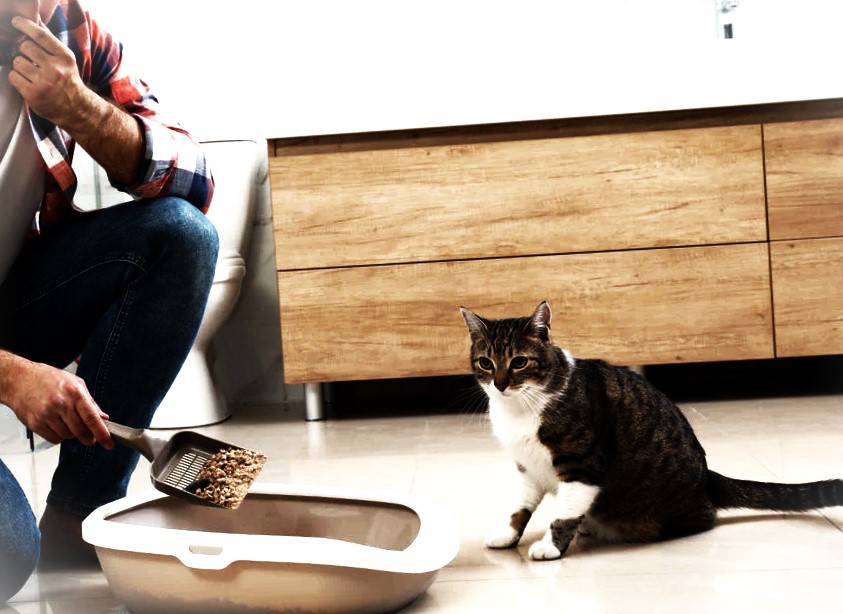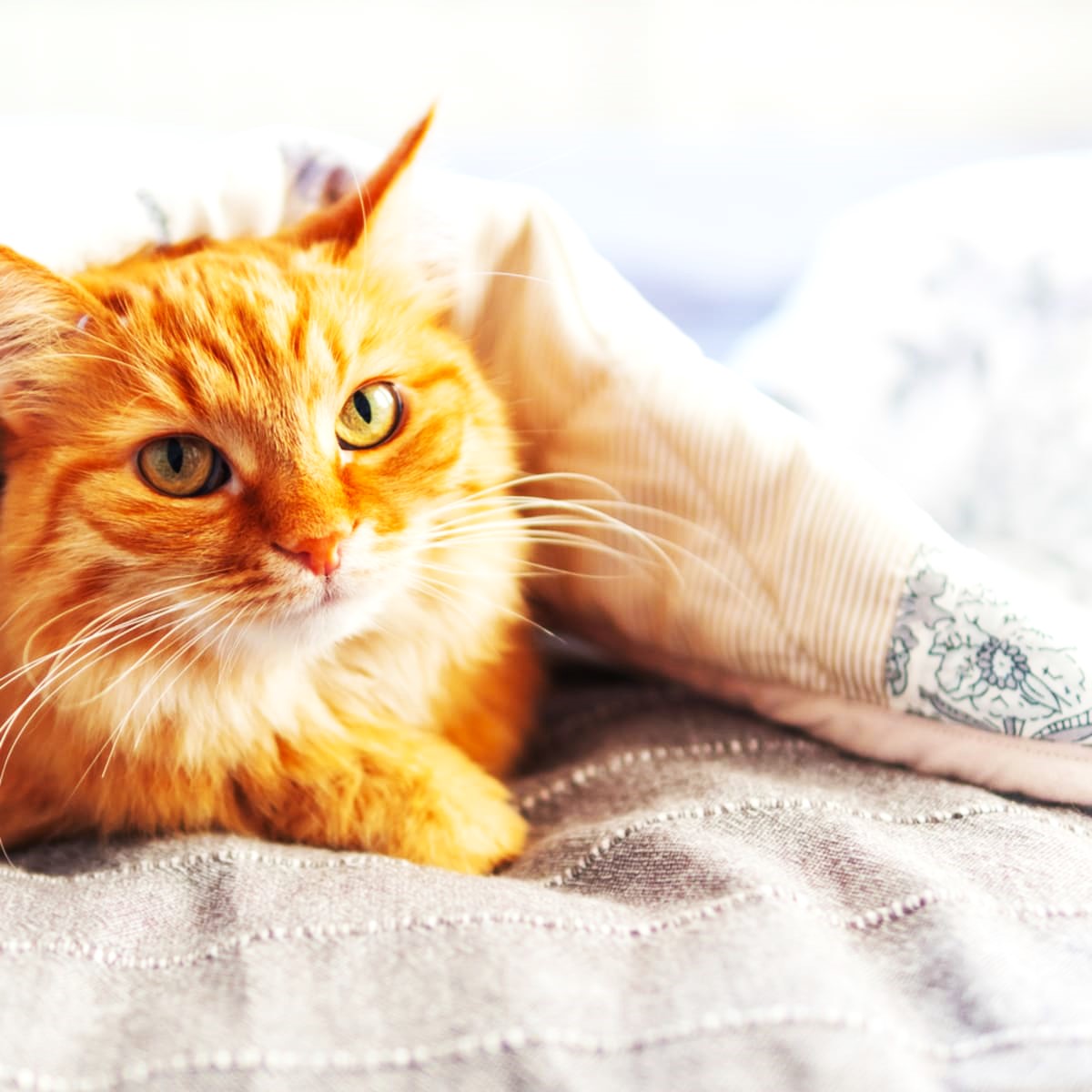Does your feline smell? Most people associate cats with cleanliness. The majority meticulously groom themselves, which keeps them free of odors and dirt. That being said, occasionally you might notice that your cat smells. While certain cat odors are benign or easily remedied, others may indicate a medical issue.
How Come My Cat Smells?
Finding the source of the odor is the best way to understand why your cat stinks. Is your cat’s face or head just plain stinky? the back end? Is there a specific area of the coat that smells, or does it seem to be everywhere? The first step in solving the issue with your stinky cat is to ask these questions. Your chances of assisting your cat will improve once you identify the source of the odor.
Causes of Cat Odors
There are a number of possible causes for cats to smell bad. Finding the source of the smell may become easier once you’ve identified its location. Your cat will almost certainly need to visit the vet. It’s crucial to get in touch with your veterinarian even if you are unable to identify the source of the odor.
Oral
Some people believe that halitosis, or foul breath, is common in cats. But persistently foul breath in cats typically indicates a medical issue. Something the cat ate could be the cause of any transient mouth odors.
Cats’ bad breath is most likely caused by dental disease. Because plaque and tartar buildup contain bacteria, they smell bad. The accumulation may result in gingivitis, gum disease, and eventually tooth loss.
If left untreated, mouth wounds, growths, and ulcers can start to smell bad. Oral bacteria have the ability to exacerbate these. Stomatitis or another condition could be the source of these lesions. These smell awful, and cats typically find them to be very uncomfortable. Uncontrolled diabetes mellitus or severe kidney disease can also cause bad breath.
Back End
There’s a good chance that the anus is the source of the foul smell if it’s coming from that vicinity. If you think you may have any of the following conditions, get veterinary medical attention:
Both humans and animals experience flatulence occasionally, and cats are no different. There might be a digestive issue with your cat if it smells really bad or passes gas a lot.
Traces of loose stool may be observed around the back after diarrhea. If the diarrhea persists, the cat might find it challenging to maintain grooming. See a veterinarian if your cat has had diarrhea for more than two days.
makes the cat strain to urinate because it causes stool to back up in the colon. While the hard, impacted stool may not pass, liquid stool occasionally does. This tends to smell particularly bad and can get on your cat’s nerves. For the cat, this is an extremely uncomfortable scenario that may indicate a more serious health problem.
Tiny sacs called anal glands are found directly outside of a cat’s anus. Normally, during defecation, they release a fluid that smells somewhat fishy, putrid, and oily. Similar to a skunk’s scent glands, the fluid may also be released during intense fear, stress, or excitement. The anal glands may occasionally become impacted, infected, or inflammatory. A portion of the liquid may leak out, leaving a cat with an extremely unpleasant smell that doesn’t seem to go away. These cats may lick their anus excessively or scoot around rubbing their rear ends.
Perianal fistulas are wounds with a tunnel-like structure that occur in and around the anal region. Despite being relatively uncommon in cats, these can have very serious consequences. Perianal fistulas are incredibly unpleasant and foul-smelling. They frequently need surgical intervention and can cause or coexist with other gastrointestinal issues.
Coat and Skin
Should your cat’s odor appear to originate from every part of their body, there may be an issue with their skin and coat. If your cat is clearly dirty, a bath could be helpful. If your cat appears clean enough, there might be a more serious issue at hand. To treat your cat’s skin condition, consult a veterinarian.
Cats with skin infections may smell bad all over. The cat may have a thinning coat and clearly inflamed skin if the infection is severe. After handling a cat that has a serious skin infection, you might notice that your hands have an oily, foul-smelling coating. Usually, an overgrowth of bacteria or fungi is the source of the odor.
Skin wounds may remain undetected under the hair and develop an infection. This could lead to a pus or foul-smelling discharge coming out of the wound. Try tracing your fingers through your cat’s coat to look for wounds if you’re having trouble identifying the source of the odor coming from their body. See your veterinarian right away if you come across one.
Hearing
Your cat may start scratching and shaking their head, and you may notice that their ears smell bad.
Otitis externa, or cat ear infections. Animal Hospitals VCA.
Examine the interior to check for debris, as this is frequently an indication of an ear infection. To find out if your pet has an ear infection and to start the proper treatment, make sure to see your veterinarian as soon as possible.
Urinary Issues
The overpowering ammonia-like stench of cat urine can intensify in the event of an issue. Urine can smell particularly foul when suffering from a urinary tract infection. It’s possible for your cat to smell like pee or urine if they are incontinent, or unable to control their urination. It’s crucial to visit the veterinarian to find out why your cat smells like urine.
CAUTION
There is an emergency if your cat is straining to urinate but is not actually passing urine. There’s a chance your cat is blocked. Obstructions of the urinary tract can be fatal. Take your cat right away to the closest open veterinarian.
When to Contact the Vet
Keep in mind that cats are very good at hiding sickness. If you see any symptoms of illness by then, it could be too late. Make sure to get in touch with your veterinarian as soon as you notice any symptoms of illness or if there is an odd smell that won’t go away.




